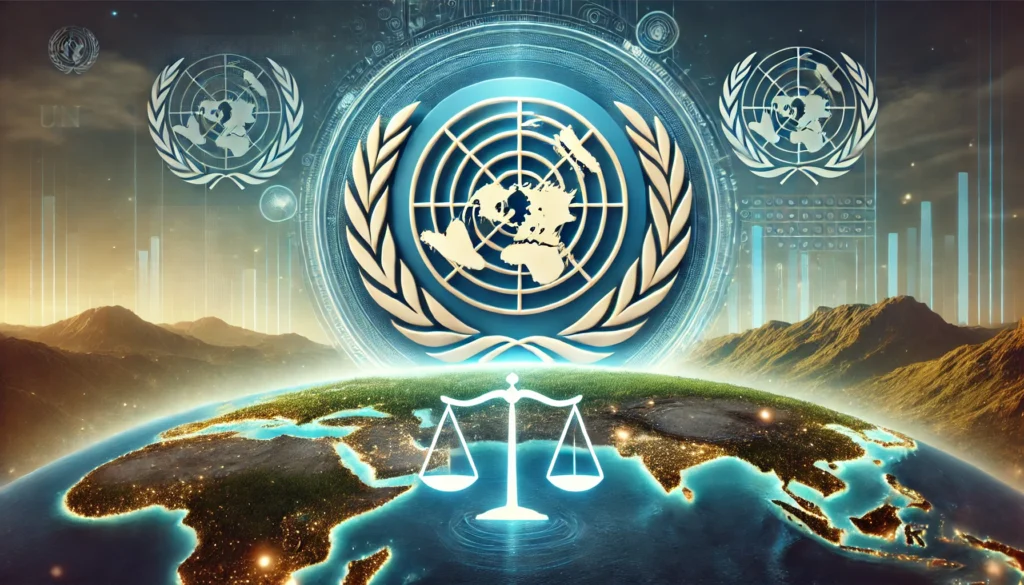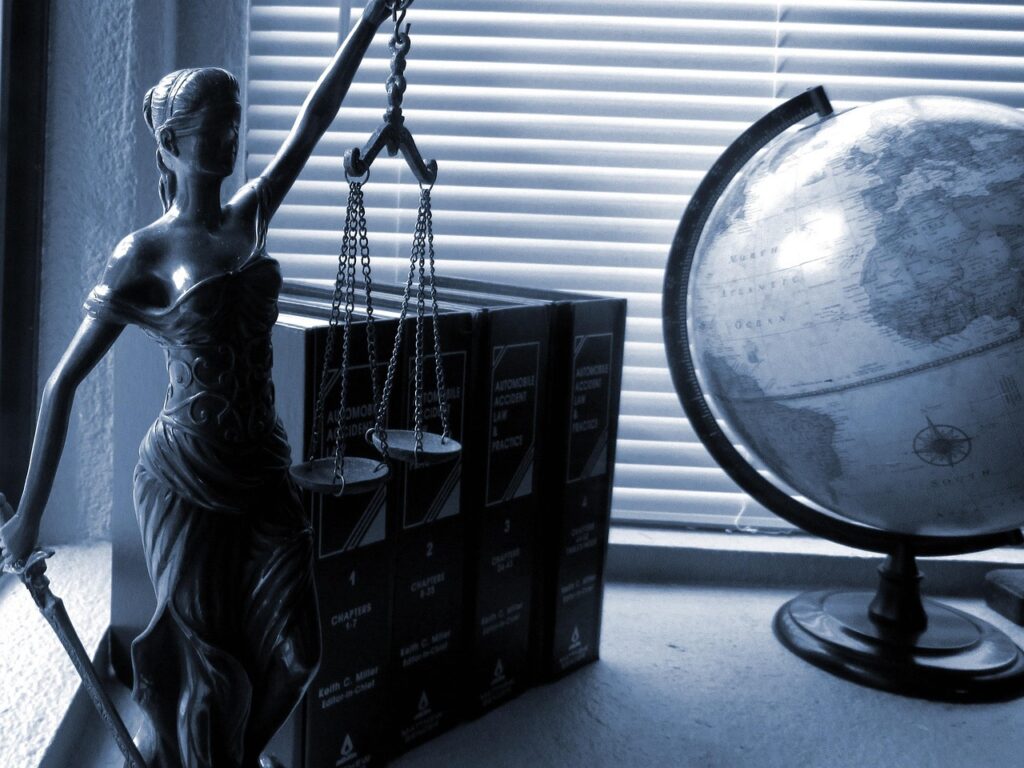Published On: October 27th 2025
Authored By: Vaishali Jain
Fairfield Institute of Management and Technology, GGSIPU
Introduction
War has always been a brutal feature of human history, but the 20th century, with its two world wars and countless other conflicts, witnessed a horrifying evolution in the scale and savagery of human suffering. In response, the international community developed a robust body of law – International Humanitarian Law (IHL) and International Human Rights Law (IHRL) – designed to protect individuals during armed conflict. However, for decades, these laws existed more as aspirational ideals than enforceable statutes. The most serious crimes often went unpunished, with perpetrators shielded by national amnesties or the impunity of victory. This impunity gap created a vacuum where the most fundamental human rights could be violated with terrifying regularity.
The establishment of the International Criminal Court (ICC) in 2002 through the Rome Statute marked a paradigm shift. It emerged as the first permanent, treaty-based international court designed to end impunity for the perpetrators of the most serious crimes of concern to the international community. Its mandate directly intersects with the protection of human rights in the crucible of war. This article examines the crucial role of the ICC in upholding human rights during armed conflicts, analysing its legal framework, its operational mechanisms, the significant challenges it faces, and its profound impact on the global justice landscape.
The Legal Mandate: Codifying Atrocity
The ICC’s jurisdiction is not unlimited; it is precisely focused on what are often called “atrocity crimes.” These are the violations that strike at the very heart of human dignity and constitute the most egregious assaults on human rights during conflict. The Court has jurisdiction over four core crimes:
- The Crime of Genocide: Defined by the intent to destroy, in whole or in part, a national, ethnical, racial, or religious group. This represents the ultimate denial of the right to existence.
- Crimes Against Humanity: Widespread or systematic attacks directed against any civilian population, including murder, extermination, enslavement, torture, rape, and enforced disappearances. This category captures the systematic erosion of a population’s human rights.
- War Crimes: Serious violations of the laws and customs of war applicable in both international and non-international armed conflicts. This includes willful killing, torture, inhuman treatment, intentionally directing attacks against civilians, and pillaging. War crimes are the direct breach of IHL designed to protect human rights in conflict.
- The Crime of Aggression: The planning, preparation, initiation, or execution of an act of aggression by a state leader which, by its character, gravity, and scale, constitutes a manifest violation of the UN Charter. This crime addresses the human rights catastrophe that is war itself.
This legal framework is revolutionary because it individualizes responsibility. Instead of holding states accountable (the purview of the International Court of Justice), the ICC prosecutes individuals—be they presidents, military commanders, or rebel leaders—who bear the greatest responsibility for these crimes. This personal accountability is a direct mechanism for enforcing human rights norms.
The Principle of Complementarity: A Catalyst for National Justice
A foundational and often misunderstood pillar of the ICC is the principle of complementarity. The Court is not intended to replace national judicial systems; rather, it is a court of last resort. According to the Rome Statute, the ICC can only exercise jurisdiction if a state is unwilling or genuinely unable to investigate or prosecute the crimes itself.
This principle is not a weakness but a strategic strength with profound implications for human rights. It creates a powerful incentive for states to strengthen their own domestic legal institutions to avoid ceding jurisdiction to The Hague. The mere existence of the ICC pressures nations to enact legislation that incorporates the Rome Statute’s crimes into national law, to train judges and prosecutors in international criminal law, and to conduct genuine investigations. In this way, the Court’s greatest impact may be the cases it does not have to hear because robust national proceedings have been initiated, thereby embedding the protection of human rights directly into domestic frameworks.
Operationalising Justice: Investigations and Prosecutions
The ICC’s work begins when a situation is referred to it either by a State Party, the United Nations Security Council (UNSC), or by the Prosecutor initiating an investigation proprio motu (on their own motion). Once a situation is opened, the Office of the Prosecutor (OTP) conducts painstaking investigations to gather evidence, identify victims and witnesses, and build cases against those deemed most responsible.
The Court’s jurisprudence has already significantly advanced the understanding of human rights in conflict. Landmark cases have:
- Expanded the Definition of Sexual and Gender-Based Violence: The conviction of former Congolese warlord Jean-Pierre Bemba for rape as a war crime and a crime against humanity established command responsibility for atrocities committed by subordinates. While later acquitted on appeal on procedural grounds, the trial judgment sent a powerful message that sexual violence is a strategic weapon of war that will be prosecuted at the highest level.
- Protected Cultural Rights: The destruction of cultural heritage was thrust into the spotlight with the trial of Ahmad al-Faqi al-Mahdi for directing attacks against religious and historic buildings in Timbuktu, Mali. His guilty plea and conviction confirmed that the deliberate destruction of a population’s cultural identity is a serious international crime.
- Given Voice to Victims: The ICC’s innovative system allows victims to participate in proceedings through legal representatives and to claim reparations. This transforms victims from passive observers into active participants in the justice process, affirming their right to remedy and recognition—a core tenet of human rights law.
Significant Challenges and Criticisms
Despite its noble mandate, the ICC operates in a highly politicized environment and faces formidable challenges that impact its effectiveness:
- Selectivity and Perceived Bias: The Court’s docket has historically focused on African nations, leading to accusations of neo-colonialism and selective justice. While the situations were referred by African governments themselves or the UNSC, the perception of bias has damaged the Court’s legitimacy. The recent expansion of investigations into situations in Asia (Myanmar/Bangladesh), Eastern Europe (Ukraine), and the Middle East (Palestine) may help counter this narrative, but the charge remains potent.
- Lack of Universal Jurisdiction and Enforcement: Major powers like the United States, Russia, China, and India are not States Parties to the Rome Statute. This limits the Court’s reach and, crucially, its ability to apprehend suspects without state cooperation. The ICC has no police force; it relies on states to arrest and surrender suspects. The failure to execute arrest warrants for high-profile individuals like Sudan’s former President Omar al-Bashir, who travelled freely to non-cooperating states, highlights this critical weakness.
- Political Interference: The UNSC can refer situations (e.g., Darfur, Libya) but also has the power to defer investigations for one year through a resolution, a power subject to the veto of its permanent members. This injects geopolitics directly into the judicial process, potentially shielding allies from accountability.
- Practical and Resource Constraints: Investigations in active conflict zones are extremely dangerous, expensive, and time-consuming. Gathering evidence while protecting witnesses and investigators presents immense logistical and security hurdles.
Conclusion
The International Criminal Court is not a panacea for the horrors of war. It is a young, imperfect institution navigating the treacherous waters of international power politics. It cannot prevent every atrocity, and its reach is constrained by the very world order it seeks to regulate.
However, to judge it solely on its conviction rate or its current political struggles is to miss its profound symbolic and normative contribution to human rights. The ICC embodies the global promise of “never again.” It has irrevocably changed the conversation on accountability, putting perpetrators on notice that a permanent institution exists to hold them to account. It has catalysed the development of domestic justice systems and provided a platform for victims to seek justice and reparations.
Ultimately, the ICC’s role is that of a guardian. It guards the principles of the Geneva Conventions, guards the memory of the victims, and guards the hope that the rule of law, however slowly and imperfectly, can extend even into the darkest theatres of war. Its existence affirms that mass atrocities are not just “politics by other means” but are crimes under international law for which individuals must answer. In the long arc of history, the establishment of this permanent court may be seen as a pivotal step in humanity’s struggle to protect human rights, even when those rights are under the most violent assault.




